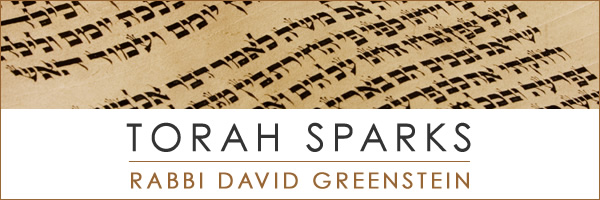Parashat Tzav (March 21, 2013)
Leviticus 6:1 – 8:36
Our Torah portion devotes most of its time to describing the initiation ceremony
that installed Aaron and his sons into the priesthood. They are to perform a series
of rituals for the first time, thus certifying that it is they who will be in charge of
the Tabernacle ritual from now on.
The reading concludes with Moses instructing the priests that this initiation
process will take seven days and that the priests must be completely devoted to
this process, so much so that they may not even leave the Tabernacle precincts
during the whole week. To leave would be to turn one’s back on a sacred
responsibility given to them by God; it would be to betray God’s charge. It would be
a mortal sin.
This instruction includes a unique phrase. Moses tells them that they must not leave
the sanctuary – “for so have I been commanded.” (Lev. 8;35) What does Moses
mean by this? It seems unnecessary for him to mention that these instructions
have all been given to him by God. We know that already. Does he mean to say that
he was also commanded not to leave the sanctuary? This was not the case. Moses
entered and exited the sanctuary as he or God wished.
Perhaps Moses means to say something else. When he tells them that God does not
want them to leave the sanctuary, no matter what, perhaps he is not simply
repeating an official communication from God. Perhaps he means to add weight to
God’s command by explaining that he personally cares about whether they comply
with God’s command. He has been commanded by God to watch out for his brother
and nephews. He is personally invested in persuading them to do this right.
It is not necessarily a rational appeal that Moses makes. Surely God’s command
should be reason enough for Aaron and his sons to obey. But it is a deeply human
one. Moses seems to be adding a personal plea: “If you don’t want to do this for
God, please do it for me, your brother and uncle.” Sometimes, in order to bestir
ourselves toward meaningful and sacred actions we need motivation that goes
beyond the recognition of the value of the task. We need to feel connected to each
other and to believe that others care about whether we will follow through.
As we approach Passover we should note that this is a key element in the Passover
observance as well. Passover is a time of invitation and inclusion. We should
celebrate the festival because of its inherent meaning as the birthday of the
Jewish people and of the supreme value of freedom that we have taught the world.
But we get extra inspiration from each other. As Moses courageously proclaimed to
Pharoah: “We will leave no one behind! We will all leave together, young and old, men
and women and even our animals, for we all want to celebrate before God.” When we
care for each other we can become free. When we care for each other we can
become holy.
Shabbat Shalom
Rabbi David Greenstein
- Toby Stein: In Memoriam - Thu, Feb 8, 2024
- Faithfulness and Hope: Parashat Sh’lach - Thu, Jun 23, 2022
- Past Their Prime: Parashat B’ha`a lot’kha - Thu, Jun 16, 2022

